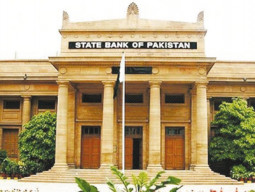
KARACHI:
Mortgage Refinance Company (MRC), which will be the country’s first of its kind entity, is going to be functional next year, according to the State Bank of Pakistan (SBP).
An official of the central bank told The Express Tribune on Friday that the company is expected to be incorporated soon, as its feasibility has been recently revalidated.
“The SBP has been facilitating the establishment of the MRC in coordination with the Ministry of Finance and other stakeholders since 2009. But stakeholders’ consultation for obtaining equity commitments took a little longer,” the SBP official said, adding that the company’s feasibility and business plan were revalidated due to a change in the country’s economic conditions.
Secondary mortgage market
The establishment of a mortgage refinance firm is aimed at developing a secondary mortgage market, which is currently non-existent in the country.
In a fully developed secondary mortgage market, mortgage loans are traded among investors, mortgage aggregators and mortgage originators, which happen to be commercial banks and House Building Finance Company (HBFC) in Pakistan’s case.
However, given the tiny size of Pakistan’s mortgage market, the proposed MRC will initially be taking on the assets – i.e. mortgage loans – of commercial banks and HBFC temporarily on its balance sheet. In return, MRC will provide mortgage originators with liquidity to further expand their portfolio.
For example, a commercial bank will have the option to shift its 15-year mortgage loan onto the books of the proposed MRC for, say, first seven years. This will enable the mortgage originator – which is the commercial bank in this example – to generate sufficient liquidity in the short run and use the same for expanding its housing finance operations.
As a result, customers will have easy access to housing finance while mortgage originators will be able to maintain liquidity despite increasing their housing finance portfolio in a short period of time.
Source of funds
“Total equity of MRC is expected to be about Rs5-6 billion. The government and commercial banks will be initial stakeholders. Upon incorporation of the company, the International Finance Company (IFC) and the Asian Development Bank (ADB) are also expected to inject equity into MRC,” the SBP official noted.
MRC will have at least three sources of funds. One, its board of directors may choose to increase the company’s capital, thus providing it with funds to acquire the assets of mortgage originators.
Two, it may seek loans from an international lender, like the World Bank. And three, the proposed MRC may decide to issue bonds and raise money through the debt market.
In view of similar experiences in other countries, the third option appears to be the most practical and viable once the company becomes financially sound and stable in a few years.
Long-term financing
At least two housing finance companies – International Housing Finance and Asian Housing Finance – were registered as non-banking finance companies in Pakistan. But none of them could sustain its operations for long due to lack of liquidity, which is a key factor in efficient housing finance and secondary mortgage markets.
Besides encouraging the establishment of housing finance companies in the country, MRC will also enable banks to offer their clients long-term mortgage loans at fixed interest rates. Currently, banks do not lock up mortgage interest rates mainly because of the ‘maturity mismatch’ arising out of their on-call deposits.
Speaking to The Express Tribune, Association of Builders and Developers of Pakistan (ABAD) Senior Vice Chairman Saleem Kassim Patel said it is impossible to increase the mortgage-to-GDP ratio (0.6%) without subsidised financing from the government.
“Banks currently make short-term investments
because they do not have funds available for the long term. We welcome the establishment of MRC and hope it will address this issue,” he added.
Published in The Express Tribune, March 22nd, 2014.
Like Business on Facebook, follow @TribuneBiz on Twitter to stay informed and join in the conversation.
COMMENTS (3)
Comments are moderated and generally will be posted if they are on-topic and not abusive.
For more information, please see our Comments FAQ


















1713281138-0/US-Treasury-Secretary-Janet-Yellen-(2)1713281138-0-270x192.webp)

























Mr. Advocate, you are better off in a court room than sitting at a bank. This is the right way for Pakistan to develop and reduce the shortage of housing it faces. I get so tired of people who simply believe business and economy is some nonsensical commonsense...it's not, and that's why we get paid a lot more than a lot of your average professionals.
Securitization, welcome to Pakistan. Another sub-prime crisis in the making?